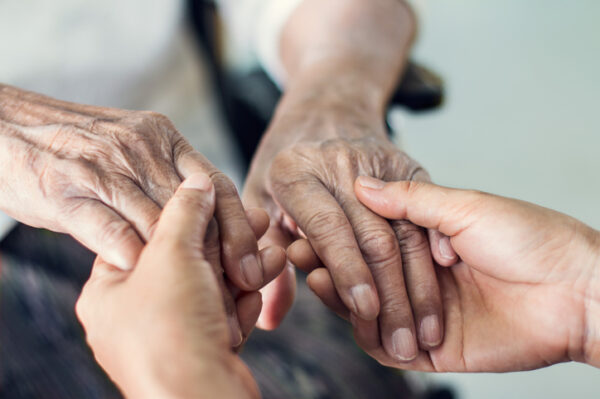
Reducing hospitalizations for frail elderly members is a major challenge for Medicare Advantage payers and providers. The key to avoiding any hospitalization is to detect and address a change in condition before it worsens. Ceresti Co-founder and CEO Dirk Soenksen talks about how his company seeks to address these needs with a Digital Caregiver Activation Platform.
Why did you start this company?
To improve the experience of families living with Alzheimer’s Disease/dementia.
What need are you seeking to address in healthcare?
The frail elderly incur 70% of all Medicare hospitalizations and drive more than 50% of total medical costs. Research shows that 50% of these hospitalizations are avoidable by activated family caregivers (spouses, adult children) when they detect changes in a loved one’s condition, before they worsen. However, most payers and providers do not have a relationship with the family caregivers of their members/patients, and lack an effective “playbook” to operationalize family caregivers into the care of their members/patients.

Dirk Soenksen
What does your product do? How does it work?
Ceresti identifies, enrolls, and activates family caregivers of frail elderly Medicare beneficiaries, at scale, to lower medical costs, deliver improved health outcomes and support aging-in-place. Ceresti’s Digital Caregiver Activation Platform (DCAP) leverages data and predictive analytics to activate and support family caregivers via a personalized non-medical program of education, resources, social-worker-led coaching, and caregiver-enabled remote monitoring of their loved one; all delivered via a dedicated tablet that is shipped to the caregiver’s home.
Is this your first healthcare startup? What’s your background in healthcare?
No. Prior to co-founding Ceresti, I was the founder and CEO of venture-backed Aperio which we built into the recognized global leader in digital pathology. Aperio was acquired by Danaher/Leica Biosystems in October 2012. In 2006, I founded the Digital Pathology Association (DPA), a non-profit organization comprising major vendors and leading pathologists, with the goal of establishing best practices and increasing awareness of digital pathology. I served as President of the DPA from its inception until 2012, and as a board member of the DPA through the end of 2014.
What is your company’s business model?
We charge a monthly fee per enrolled caregiver/member dyad. This can be annualized into a monthly fee that is sometimes based on the total number of members in a population (i.e., a PMPM).
Who is your customer?
Our (paying) customers are Medicare Advantage health plans, including Duals plans and PACE programs, as well as at-risk providers. For any engagement, we offer our program at no zero costs to caregivers/families. We’re a BBC company.
Do you have clinical validation for your product?
Yes. An 80% reduction in hospitalizations (p=0.02) and a 53% reduction in medical costs (p=0.003) were realized in an independently validated clinical study in Medicare Advantage members (N=164) with Alzheimer’s/dementia.
Photo: ipopba, Getty Images
This is a paid member feature of MedCitizens. Please submit here and join!






